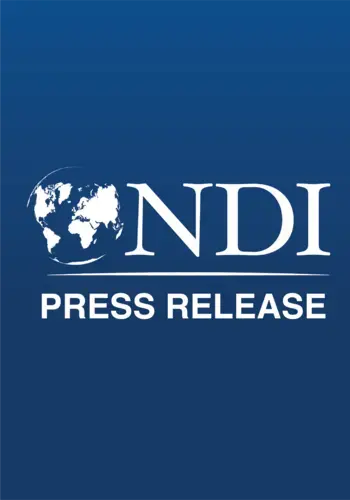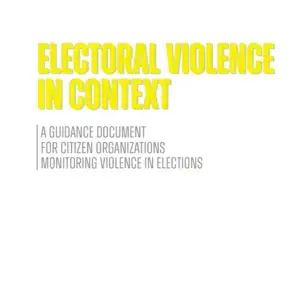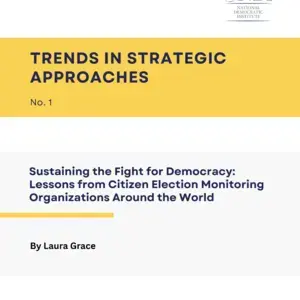Download release in Arabic | English | French
Download full statement in Arabic | English | French
TUNIS, Tunisia – On October 26, Tunisians went to the polls to participate in their first democratic legislative elections. The process was distinguished by active participation of candidates, observers, and voters. Civil society and political parties played an active role in the election process, demonstrating commitment to democratic institutions.
The 51 members of the National Democratic Institute (NDI) international observer delegation came from 22 countries and were led by Darrell Dexter, former premier of the Canadian province of Nova Scotia; Zakia Khattabi, member of the Belgian parliament; and Kenneth Wollack, president of NDI.
“We have observed an historic process, in which a new election administration successfully oversaw a process which included active participation of political parties, civil society, voters and the media,” said Kenneth Wollack.
“Women, youth and Tunisians abroad were encouraged to participate, along with smaller parties and independent candidates,” added Zakia Khattabi. “This is an important step forward, strengthening a young democracy despite the need to consider enhancements for future elections.”
NDI observers were deployed throughout the country ahead of election day to observe the voting and counting procedures. NDI launched its mission in late June at the opening of the voter registration period. A team of seven long-term observers have been deployed across the country to monitor the pre-electoral environment and campaign period.
“These legislative elections were a milestone. The focus for elected officials now becomes how they can address the priorities of the citizens across Tunisia who have elected them. Voters want to see how democracy can deliver in improving the quality of their daily life,” concluded Darrell Dexter.
Taking lessons from this experience, election authorities, political contestants, and civil society groups may consider measures to further build public confidence in the Nov. 23 presidential vote: consistent communication by the election commission; the organization of candidate debates; and a comprehensive voter education campaign.
View Downloads
- English - NDI Tunisia 2014 Legislative Elections Press Release
- French - NDI Tunisia 2014 Legislative Elections Press Release
- Arabic - NDI Tunisia 2014 Legislative Elections Press Release
- English - NDI Tunisia 2014 Legislative Elections Preliminary Statement
- French - NDI Tunisia 2014 Legislative Elections Preliminary Statement
- Arabic - NDI Tunisia 2014 Legislative Preliminary Election Statement




